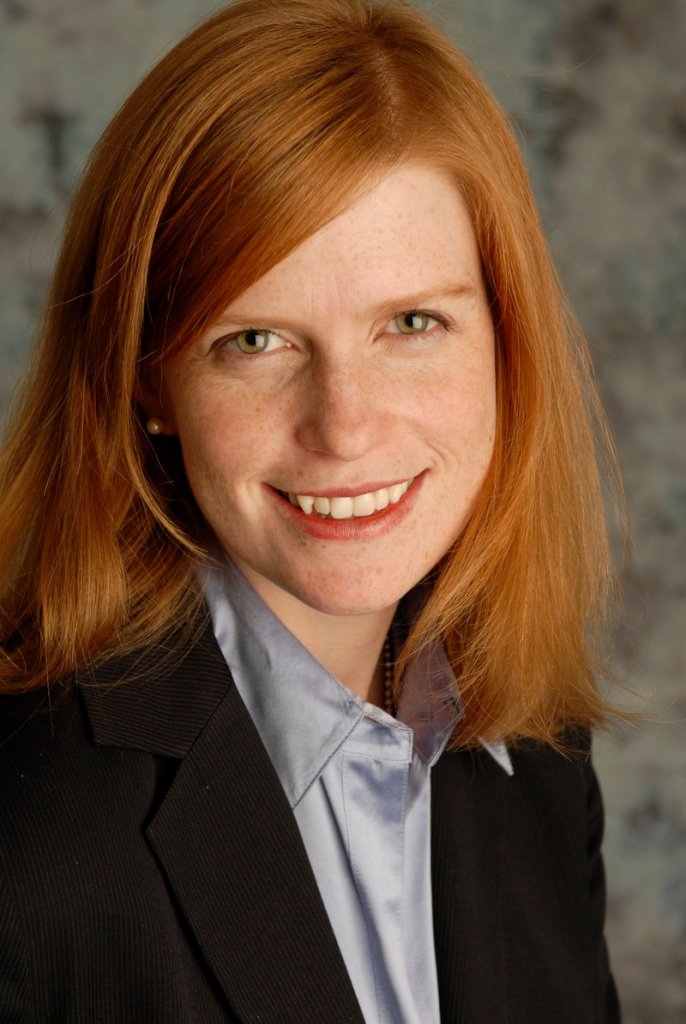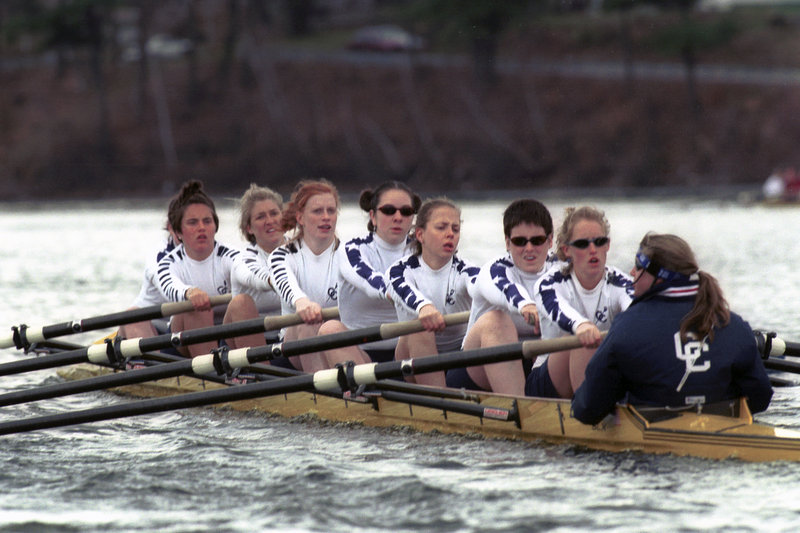To say that Title IX set the course for Julia Pitney’s life would not be an overstatement.
Pitney, a lawyer at the firm of Drummond & Drummond in Portland, said she is a lawyer because of what she learned fighting for equal rights as an athlete at Connecticut College in New London.
It was the fall of 1999, and Pitney, then Julia Greenleaf, was a member of the women’s crew team at the school. The old coach left to be replaced by a new one with little experience, so the men’s and women’s teams were combined — and to make matters worse, a couple of longtime assistant coaches resigned.
The 40-member team went on strike, refusing to row in practice and taping over the team name on their uniforms. They staged a sit-in and demanded a national search for a qualified coach.
“We felt we were being treated unfairly,” said Pitney.
When it was all over, the women’s team had won its showdown.
And Pitney had found her calling.
“This event made me decide that I wanted to go into law,” said Pitney, who grew up on Little John Island and played field hockey at Yarmouth High (playing on the school’s only state champion team, Class B in 1995). “Because I wasn’t the best rower, I wasn’t the best athlete, but I wrote all of the letters (to the trustees) … I mean, really detailed letters.”
Pitney and others met with the college president — “I bought my first business suit, not for my first job interview, but for that meeting with the college president” — knowing she and the other seniors would never see the benefits of any changes they would force the school to make.
Pitney and her teammates watched the movie “A Hero for Daisy,” a documentary about the 1976 Yale women’s crew team, in which the women protested poor practice conditions by stripping naked to expose the phrase “Title IX” written in blue marker on their torsos.
While “not as brave as the Yale women, we wore our crew jerseys,” said Pitney, the team staged the sit-in and she crafted their demands.
“We wanted equal treatment,” she said. “We wanted a coach that reflected the caliber of the team and the program and these women.”
After a 90-minute meeting, the school agreed to all of their demands. The school hired a coach (Eva Kovach) who is still there today, and the program remains strong.
“It made me see that I had some knack for advocacy,” said Pitney, who specializes in employment law and discrimination cases. “I don’t deal with Title IX per se, but I really believe in fundamentally fair treatment of people, on both sides. And what really got me so fired up about this was that we were so blatantly being treated unfairly.”
Of course, that wasn’t her first brush with Title IX.
Her family moved to Columbus, Ohio, for two years while she was in high school, where she played field hockey.
“In Columbus, football is God,” she said. “And there, I would say, they were a few years behind in terms of equality.”
One time when her team had a home game, the field was a mess. The grass hadn’t been cut, and it wasn’t lined. When they went to the athletic director to complain, the players were told to get their boyfriends and cut and line the field themselves.
So the players went to the football stadium, lined the field and played the game there.
But it wasn’t until her college years that her eyes were really opened to Title IX — and her life was set on its current course.
“That was the event that made me realize people needed an advocate,” she said. “And attorneys are advocates.”
CORRECTION: This story was updated on Sunday, June 17 to reflect that Julia Pitney grew up on Little John Island, not Little Deer Island.
Send questions/comments to the editors.






Success. Please wait for the page to reload. If the page does not reload within 5 seconds, please refresh the page.
Enter your email and password to access comments.
Hi, to comment on stories you must . This profile is in addition to your subscription and website login.
Already have a commenting profile? .
Invalid username/password.
Please check your email to confirm and complete your registration.
Only subscribers are eligible to post comments. Please subscribe or login first for digital access. Here’s why.
Use the form below to reset your password. When you've submitted your account email, we will send an email with a reset code.